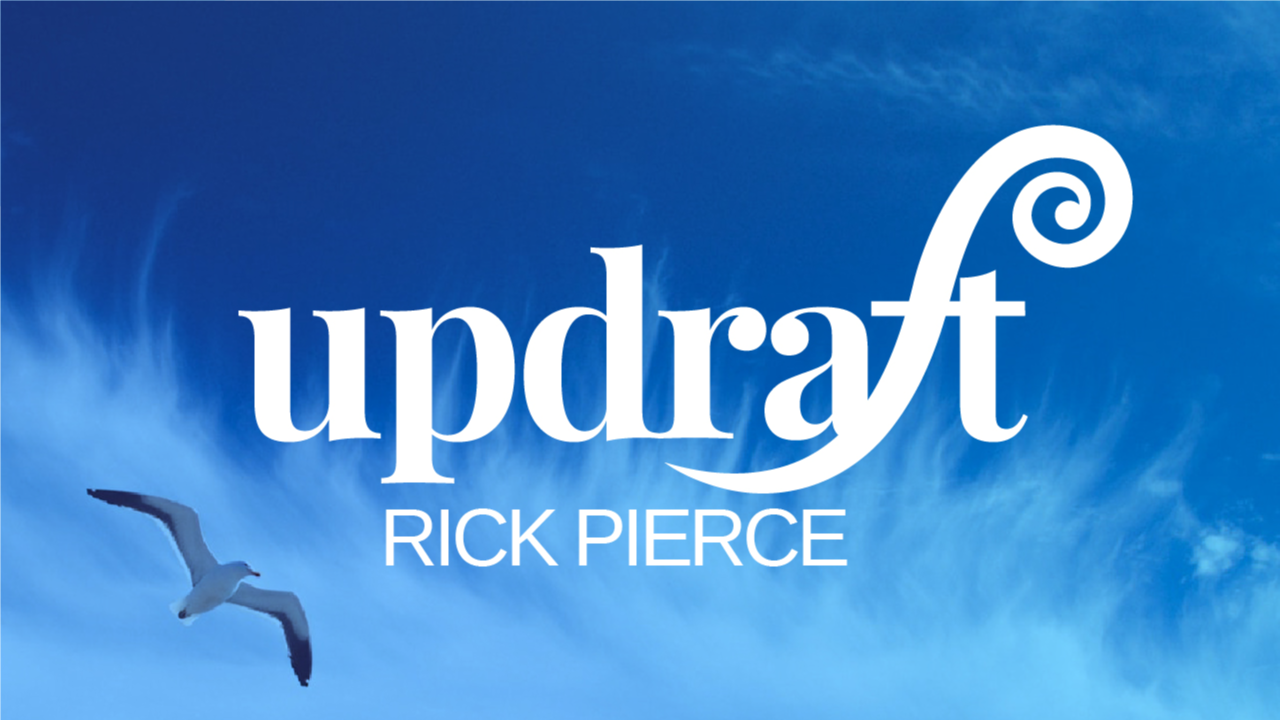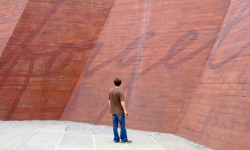
An ‘updraft’ in meteorology characterises a storm’s early development as warm air rises, eventually bringing the rains that offer sustenance and life. Rick’s hope for this monthly updraft column is for it to be a catalyst for change, ultimately contributing to the transformation of our faith communities. This regular column first appears in the Northern Baptist Association monthly newsletter, ‘Northern Lights’.
Last week several of us gathered at Carey Baptist College for the ‘Renew Together,’ Tāmaki Makaurau Pastors’ Lunch, hosted by NZBMS. After the restrictions on our ability to meet because of COVID, it was a special time of being together. We lifted our voices in praise as one people and prayed together (including hearing those prayers in diverse languages!). John Tucker (Principal of Carey Baptist College) followed, opening the scriptures to bring an inspiring and hope-filled message from Isaiah 43. Afterwards, we had a great conversation over lunch.
As I reflected on that time and what God was saying through his word, there are two verses I’d like to share with you in this month’s Updraft. Isaiah 43:18-19 says: ‘Forget the former things; do not dwell on the past. See, I am doing a new thing! Now it springs up; do you not perceive it? I am making a way in the desert and streams in the wasteland’.
As we look around at our circumstances, I think we can hear the word of God through Isaiah as a real and alive word for us as his people today, ‘see, I am doing a new thing.’ But what does it mean to ‘forget the former things’? In the two verses just before these, Isaiah reminds God’s people of God’s miraculous power demonstrated through the exodus, particularly the parting of the waters at the Red Sea. So why, having used this imagery, does Isaiah say, ‘forget the former things’? Surely he can’t be meaning to forget God’s faithful, redemptive, miraculous activity in the past?
We see that the Israelites had allowed their past experiences of God’s action on their behalf to limit their expectations of how he would continue to act. Yet Isaiah reminds God’s people (and we are reminded through his words) that God is our redeemer; he is the Holy One of Israel, our creator and King. He has acted on behalf of his people in the past, and he will continue to act on behalf of his people in the present and future. BUT the past does not prescribe how God will work in the future. We should not limit our understanding of what God can do now by how he has acted in the past. We’re not to allow his past ways of revelation and demonstration of power to inhibit our vision of how he is at work and making himself visible in the new thing he is doing today.
Many recognised that even before COVID, ‘the church’ needed to change. Continuing with rhythms and practices that have been effective in times when the church was more at the centre of society will not help us become a collective of faith communities that are bringing gospel renewal to people and places in our local neighbourhoods today. This is particularly true in a time when the church lies more towards the fringes of society, often now viewed as irrelevant and holding outdated views. Our recent COVID lockdowns have only heightened awareness of our need for change and the urgency of it. Now is an opportunity to pause, pray and discern who we are as God’s people. What is he calling his church to be and do today? What is the new thing he is doing, and how are we to respond to join him in what he is doing?
As we look to embrace the new work of God, we also need to be prepared to ‘forget the former things’ that have defined us as his church in the past. Let’s be ready to trust God, to enter the unknown courageously, and together discern the new work God is doing today to re-envision and renew his people. Our God is able to make a way where there is no way! He is a God who continues to be active in the world, and his way will see living waters bringing new life to the desert-like conditions we are experiencing in the world today. We can be assured of that, not because of anything we do but because of who he is. It’s founded in his character and faithfulness to act on behalf of his people. May we have eyes to see the new thing he is doing and the courage to leave our former things behind.
Rick Pierce is Minita-a-rohe mō te Hauoratanga me te Whakawhanake, Network Pastor, Health and Development, Northern Baptist Association. You can contact Rick by email: [email protected]
For more editions of Updraft, click here.


